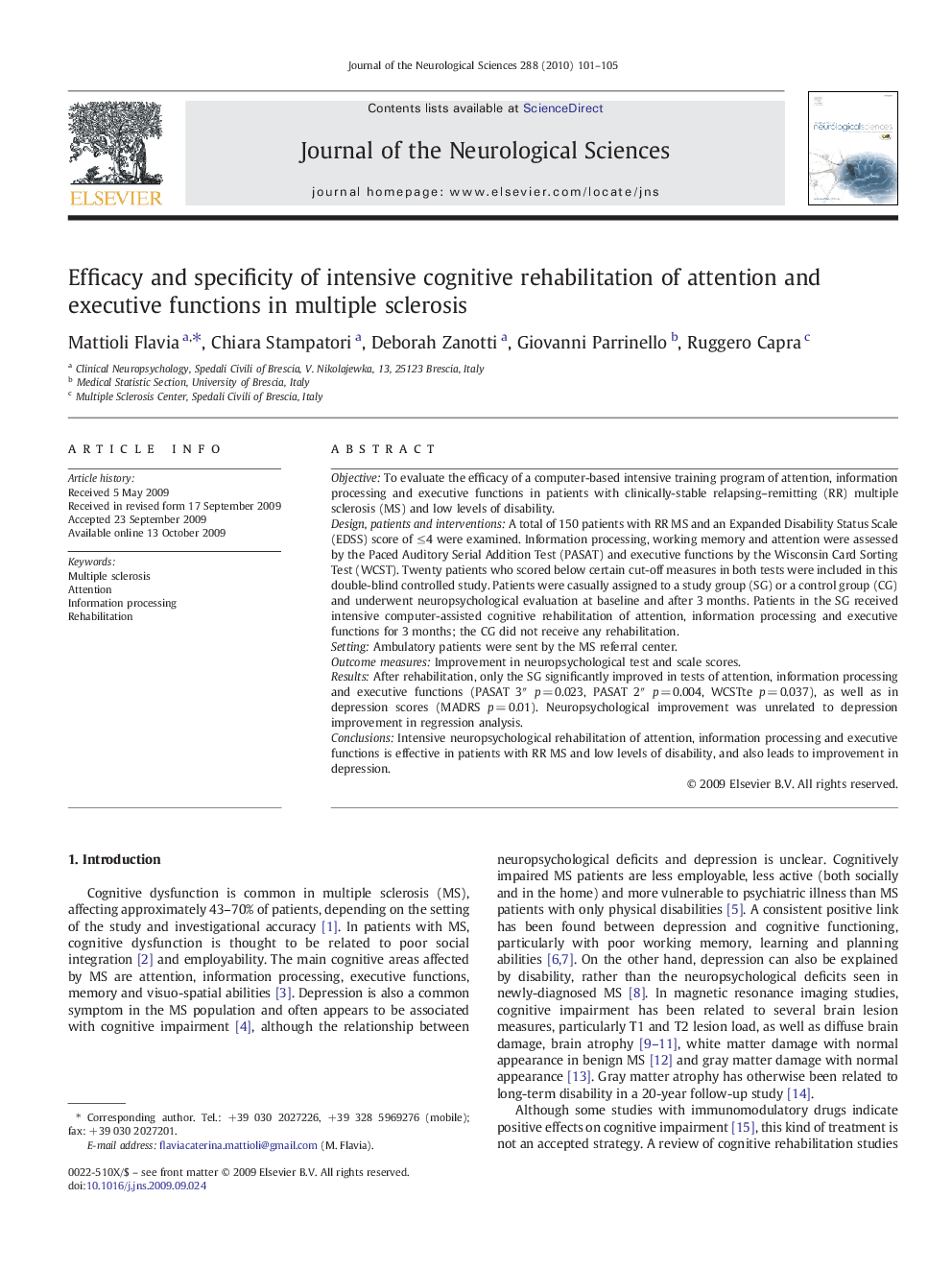| Article ID | Journal | Published Year | Pages | File Type |
|---|---|---|---|---|
| 1914763 | Journal of the Neurological Sciences | 2010 | 5 Pages |
ObjectiveTo evaluate the efficacy of a computer-based intensive training program of attention, information processing and executive functions in patients with clinically-stable relapsing–remitting (RR) multiple sclerosis (MS) and low levels of disability.Design, patients and interventionsA total of 150 patients with RR MS and an Expanded Disability Status Scale (EDSS) score of ≤ 4 were examined. Information processing, working memory and attention were assessed by the Paced Auditory Serial Addition Test (PASAT) and executive functions by the Wisconsin Card Sorting Test (WCST). Twenty patients who scored below certain cut-off measures in both tests were included in this double-blind controlled study. Patients were casually assigned to a study group (SG) or a control group (CG) and underwent neuropsychological evaluation at baseline and after 3 months. Patients in the SG received intensive computer-assisted cognitive rehabilitation of attention, information processing and executive functions for 3 months; the CG did not receive any rehabilitation.SettingAmbulatory patients were sent by the MS referral center.Outcome measuresImprovement in neuropsychological test and scale scores.ResultsAfter rehabilitation, only the SG significantly improved in tests of attention, information processing and executive functions (PASAT 3″ p = 0.023, PASAT 2″ p = 0.004, WCSTte p = 0.037), as well as in depression scores (MADRS p = 0.01). Neuropsychological improvement was unrelated to depression improvement in regression analysis.ConclusionsIntensive neuropsychological rehabilitation of attention, information processing and executive functions is effective in patients with RR MS and low levels of disability, and also leads to improvement in depression.
